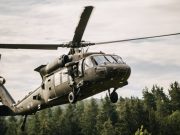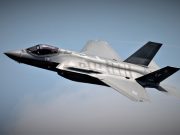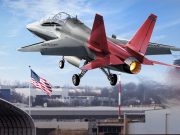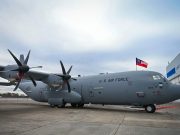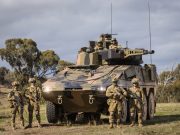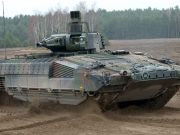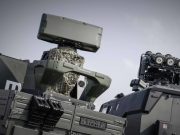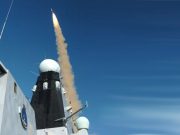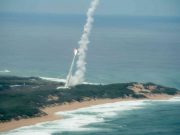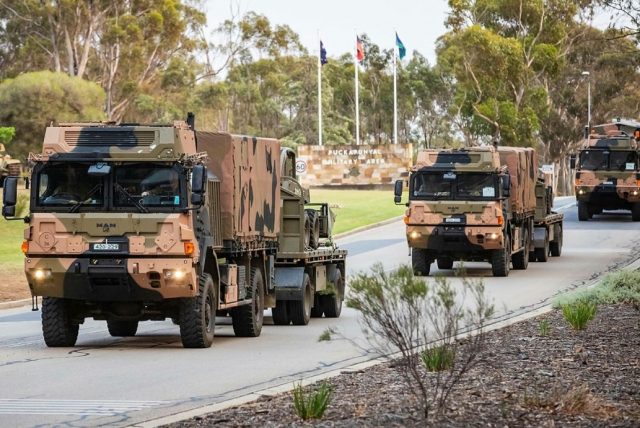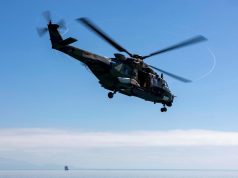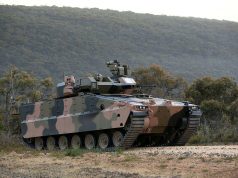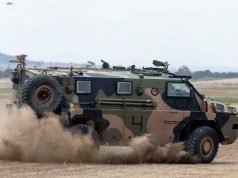An Australian Army project to develop unmanned trucks that would follow a manned leader in a convoy has passed a key milestone after completing a series of road trials.
The $3.5 million project relied on autonomous technologies to allow modified Land 121 40M cargo trucks to operate without a human at the steering wheel.
The autonomous leader-follower vehicle technology was developed under a contract between the Institute for Intelligent Systems Research and Innovation (IISRI) at Deakin University, and Army’s Robotic and Autonomous Systems Implementation and Coordination Office (RICO).
The trials took place over a two-week period at a defense ministry trials and proving establishment at Monegeetta, Victoria, and involved a five-vehicle convoy.
While the autonomous trucks will never take to the air, their concept is similar to that of another Australian autonomous system project, the Loyal Wingman unmanned aerial system (UAS). The country is working with Boeing on developing a UAS capable of undertaking a range of missions including ISR, but also shielding manned assets such as the Lockheed Martin F-35A Lightning II Joint Strike Fighters and Boeing E-7A Wedgetail early warning and control (AEW&C) aircraft.
Australian defense industry minister Melissa Price said the development of robotic and autonomous systems was vital to meeting Australia’s future operational challenges, including for humanitarian assistance and disaster relief, and in combat operations.
“The completion of this assessment within one year of the allocation of the funding demonstrates the strong industry and defense partnerships in experimentation, prototyping and exploration of autonomous vehicle and new technologies,” minister Price said.
“These technologies are ‘disruptive technologies’ that provide marked advantages on the modern battlefield by bolstering ADF capability while protecting Australian personnel.
The Army is continuing work on the potential transfer of the capability testing onto public roads with further refinement, performance enhancement and understanding of road rules.
“There are a number of technical and regulatory challenges to address to get these platforms into common use,” minister Price said.



